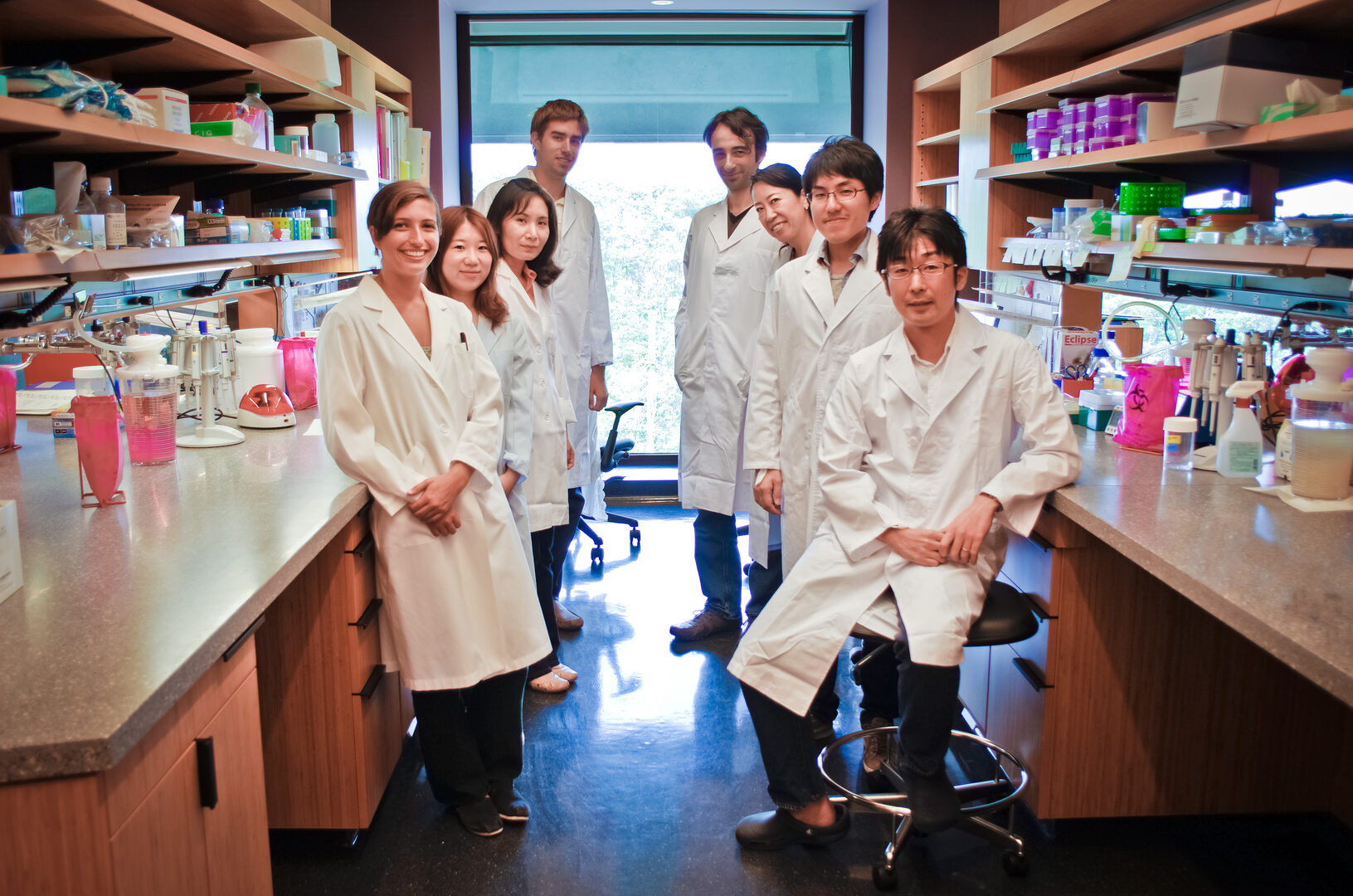FY2012 Annual Report
Immune Signal Unit
Assistant Professor Hiroki Ishikawa

Abstract
Immune signal unit is interested in the molecular mechanism underlying how adaptive immune system is activated by innate immune system and how immunological memory is generated and maintained. Our lab was established in September 2012. In FY2012, we have set up the lab environment for molecular and cellular biology experiments and introduced transgenic mice to conduct immunological assays. Our ongoing projects have focused on the molecular mechanism by which cytokines-dependent signal regulates Th17 differentiation.
1. Staff
- Dr. Hiroki Ishikawa, Assistant Professor
- Dr. Mourad Matmati, Researcher
- Dr. Hayato Yamada, Researcher
- Dr. Saori Nishijima, Technician
- Shiho Okitsu, Technician
- Rika Yoshizawa, Research Administrator
2. Collaborations
Nothing to report
3. Activities and Findings
CD4 T helper (Th) cells play a critical role in orchestrating adoptive immune responses against not only various pathogens infection but also self-antigen triggering autoimmunity. Upon recognition of a specific antigen, naïve CD4 T cells differentiate into different effector subsets. Among them, recently identified Th17 is involved in various autoimmune diseases. Cytokines TGFb and IL-6 are required for the priming of Th17 differentiation. However, another cytokine IL-23 is essential for the full differentiation of pathogenic Th17 cells. Although the critical role of IL-23 for pathogenic Th17 differentiation has been demonstrated, the molecular mechanism of IL-23-dependent pathogenic Th17 differentiation remains unknown.
To elucidate the mechanism of IL-23-dependent pathogenic Th17 differentiation, we are trying to identify novel regulators of IL-23-dependent signal using two different approaches; i) Screening of genes upregulated by IL-23 signal using microarray analysis. ii) Screening of proteins which are post-translationally modified by IL-23 signal using proteomics technologies. We’ve already identified several factors whose expression is specifically up-regulated by IL-23. We are now generating knockout mice of these candidate regulators to evaluate the role of each gene in IL-23-dependent signaling, Th17 development and autoimmune diseases.
4. Publications
Nothing to report
5. Intellectual Property Rights and Other Specific Achievements
Nothing to report
6. Meetings and Events
Nothing to report



